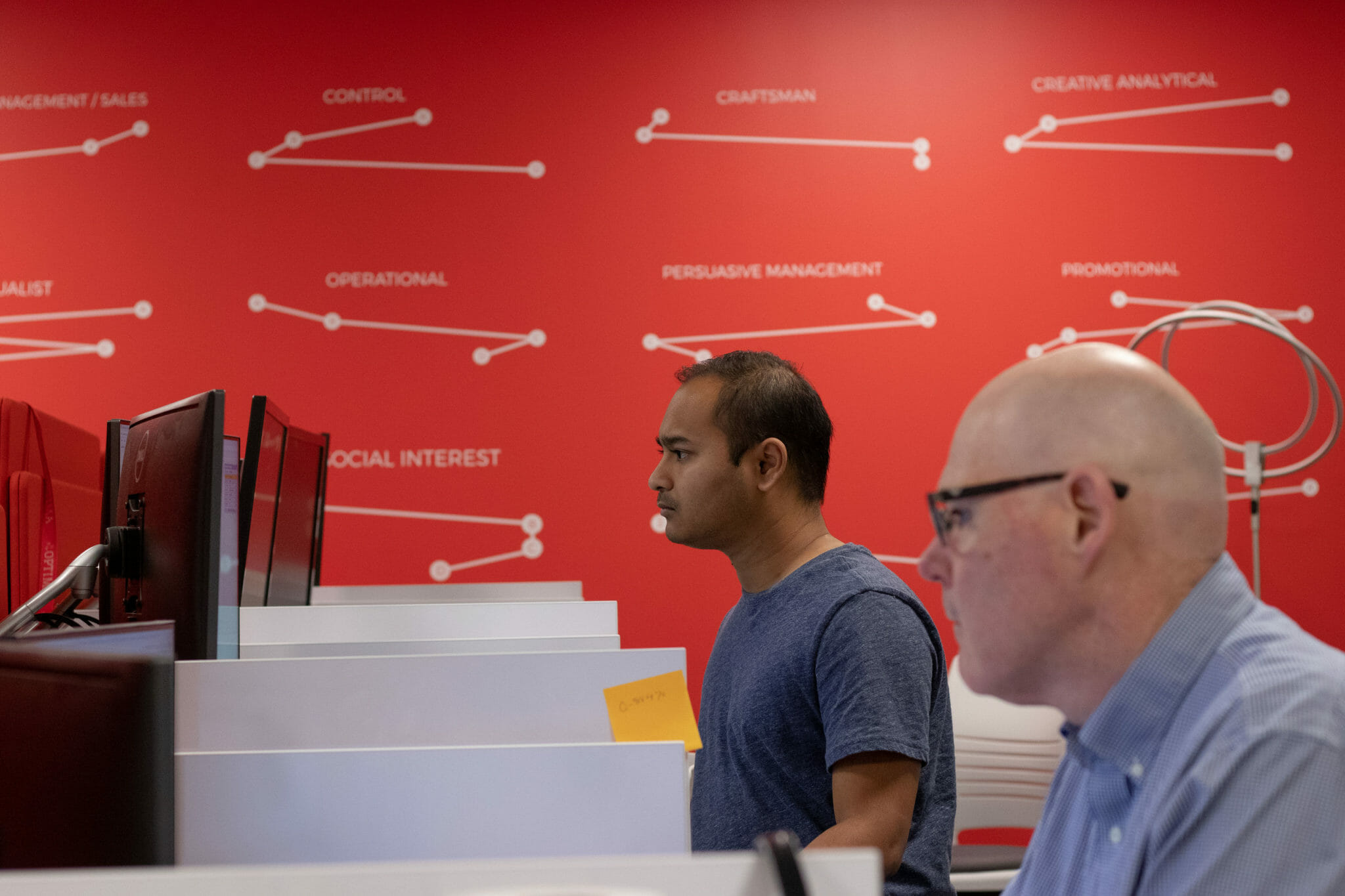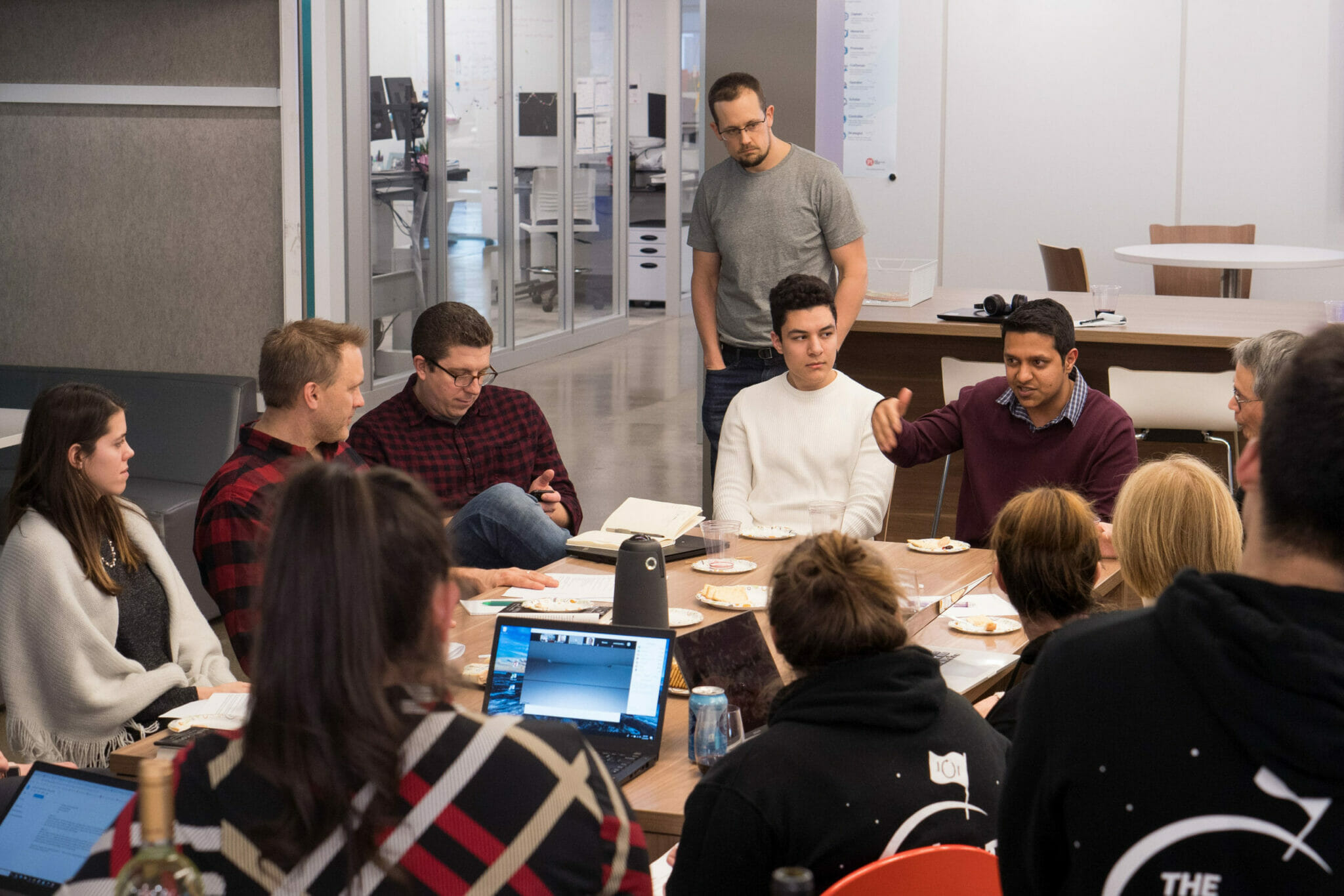Thinking about gaming the system? What you need to know before faking a personality test.
You just applied for a job and you’ve been asked to take a personality test or other pre-employment assessment. Questions immediately start rushing through your head. Is this going to be hard? What if the results are not truly me? What are they are looking for? What if I fail or they decide not to consider me because of my results? Are they going to find out I’m crazy?
Although deciding to drop out of the application process for fear of candidate rejection and limiting your job search to employers who don’t use personality assessments may seem like an option, it’s ill-advised. Bottom line, the continued proliferation of pre-employment assessments, including personality tests, in the hiring process of businesses big and small is imminent.

How do you pass a personality test?
Employers use personality tests or behavioral assessments during their hiring process to help prioritize their list of candidates or guide a structured interview process. They are ultimately trying to predict if your behavior is a good fit for a specific role or broader workplace culture.
Some assessment providers offer recommendations that essentially equate to pass or fail. However, the best assessments aim to give employers objective data so they can make more educated decisions and ultimately better understand who they are hiring. For instance, at The Predictive Index (PI) we recommend that our clients use assessments as one factor alongside their credentials, interview(s), and references when making hiring decisions. Simply put, there really is no “pass” or “fail.”
Join 10,000 companies solving the most complex people problems with PI.
Hire the right people, inspire their best work, design dream teams, and sustain engagement for the long haul.
While personality tests or behavioral assessments aren’t something to ace, or even study for, that doesn’t mean you can’t come prepared. Here are three easy best practices on how to set yourself up for success when taking these assessments:
1. Be honest.
The ultimate goal of behavioral assessments and other pre-employment tools is to gauge fit. Nobody’s looking to trip you up with these questions. Quite the opposite—they’re looking to set you up for on-the-job success. By answering honestly, you ensure you’re giving employers the best possible look at the real you. For a role you potentially see yourself working in for months if not years on end, you don’t want to feel like you can’t be your authentic self.
2. Don’t overthink it.
Even if you’re committed to answering honestly, you may get nervous. Questionnaires aren’t everyone’s cup of tea—and that’s OK. Take a deep breath, read the instructions carefully, and answer to the best of your ability. Many behavioral assessments out there don’t have a time limit, so take advantage of that! Complete the assessment at the pace that’s right for you. If at any time you find yourself struggling or overthinking an answer, trust your instincts and move on to the next.
3. Embrace the fit.
As a job candidate, it’s perfectly acceptable and recommended that you ask the employer questions related to the workplace culture or specific role that will give you a sense of the behaviors they are looking for. Regardless of whether assessments are involved, asking these questions will help you better understand if you think the job is worth going after. It will also show the employer that you are truly interested in finding a good fit for all.

Can you fake a personality test?
As with any workforce assessment or test, there are usually ways to game the system if you know enough about how the test is built or the desired outcome. And although there is much disagreement among researchers and the testing community as to how these tests can be gamed, or faked, and to what extent, it is no secret that it can and does happen.
Are some personality tests harder to game than others?
Yes. You’ll find that, for the most part, personality tests or behavioral assessments used for candidate selection and hiring are either forced-choice (think multiple choice or Likert scale)—which force you to select an answer—or free-choice. Forced-choice personality assessments are usually long, sometimes over one-hundred questions, and can seem redundant as multiple questions are usually asked to increase the assessment’s ability to accurately predict your personality and decrease your ability to game them.
Free-choice assessments, like the PI Behavioral Assessment, give you the freedom to select as many or as little behavioral descriptor items as you wish based on your own perception and preference. Since you are presented with multiple options when responding to a free-choice assessment question, what you select, what you don’t select, and how many total options you select all play into the results.
The stimulus-response experience provided by free-choice assessments, including the PI Behavioral Assessment, means that free-choice assessments are arguably more difficult to cheat than many forced-choice assessments. Even if you try to game them by selecting options that portray what you think the employer is looking for, your selections are still based on your own perceptions which likely vary from the employer’s.
Note: Some assessments may not be validated for candidate selection and hiring. The Predictive Index prides itself on offering assessments validated across the hire to retire lifecycle. Read more on assessment validity.
How to fake a personality test.
Preparing to fake a personality test may not seem difficult. Read the company website. Check out their social media posts. Study the job description and even see if you can talk to someone who works at the company to get a better understanding of the culture. Once you have that information, pretend you’re already one of their employees and take the test. Faking a different type of test, like a cognitive ability assessment or a skills test, for example, will obviously be a little more difficult. On these tests there are right and wrong answers, and so “faking” can only be done by having another person help or take the assessment for you (this won’t help on a personality test!). To be more secure, some employers may require you to take the assessment on premise under supervision to avoid any form of cheating, so be careful.

Should you fake an assessment?
You took the test and now you were invited back to continue interviewing—or perhaps this was the last stage of the interviewing process and you were offered a job. Yay! You passed the test. Now what? Well, now you don’t know if the employer accepted you because of your amazing dishonest results, or maybe your attempt to fake the test was foiled and the results are accurate. Regardless, you likely have no way to be sure and you may find yourself second guessing your decision.
Landing a job because of your faked personality test results is nothing short of self-sabotage.
If you find yourself in this position, you may not be a behavioral fit for the role. Sure, learning how to adapt your behavior and step out of your comfort zone when necessary is a good trait. However, having to adapt your behavior for an indefinite time period can make you feel excessively stressed or anxious – ultimately leading to burnout since you may never be able to operate as yourself.
Employment is a true bond between employer and employee. It only works if they need you as much as you need them. Think about it this way. Showing them your personality will provide insight into whether you are able to fulfill the behavioral or cognitive demands of the job.

Rule #1 when taking a personality test – be yourself.
The last thing you want is to be in a role that you are not a good fit for in the first place. If you game the test, you’re gaming yourself. The best advice for taking a personality test is to not overthink it and be yourself. And, regardless of the outcome, don’t be afraid to ask for the results. Although the employer may not be obligated to show you, if you do get your hands on them, you will gain a little self-awareness.
Join 10,000 companies solving the most complex people problems with PI.
Hire the right people, inspire their best work, design dream teams, and sustain engagement for the long haul.








